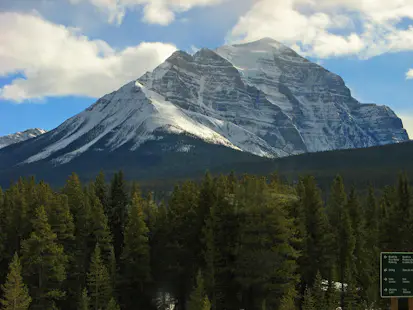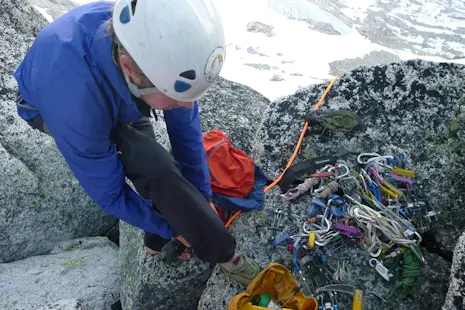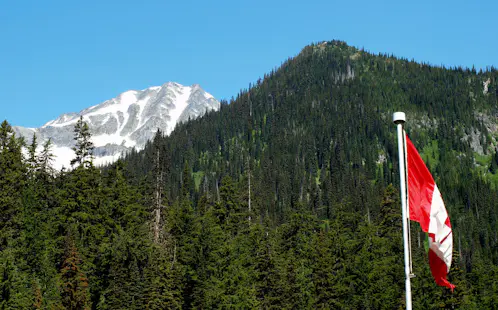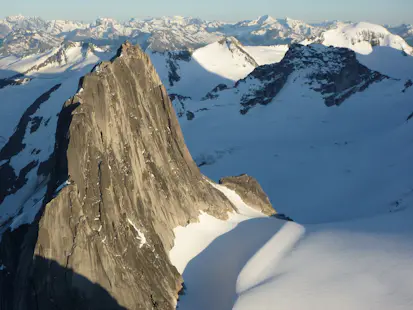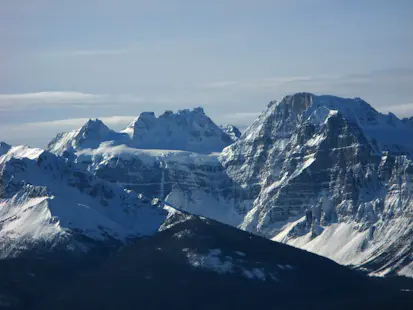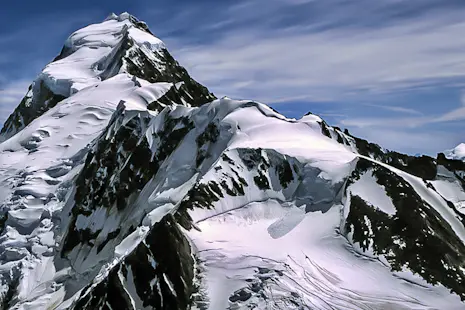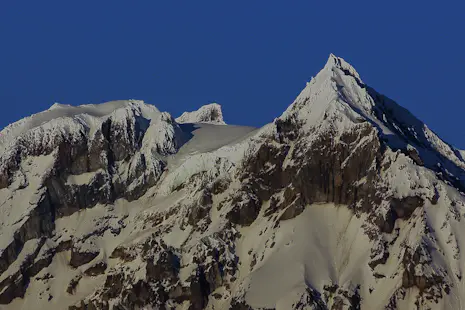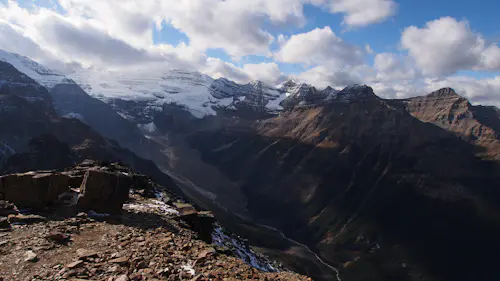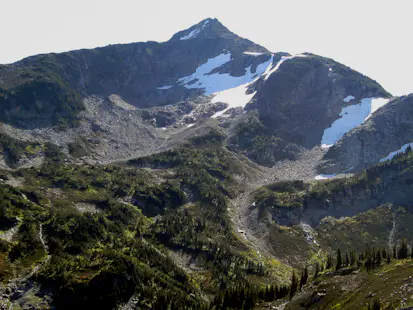Custom mountaineering skills courses in Canada
This trip is currently unavailable. Continue exploring the site and find your guided adventure!
You may also like
Choose a specific mountaineering skill to learn or improve, and take a 1-day course led by IFMGA-certified mountain guide David. These programs are held in several locations in Western Canada.
DURATION
+1 Day
OFFER PERIOD
May, Jun
FITNESS LEVEL
high
SKILL LEVEL
Beginner
PAYMENT METHODS
Credit Card, Wire Transfer and more!
Description
Description
This series of courses focuses on specific skills over three days. Based on their previous experience and goals, participants can select one to three full-day courses to acquire or refresh certain mountaineering skills, and put them into practice in a safe environment.
Courses are offered in several locations in Western Canada, such as the Canadian Rockies (3,954m), and the Coast Mountains (4,019m) and the Nelson area (535m) in British Columbia. Our most visited sites around Nelson are the Kokanee Glacier Provincial Park, the Valhalla and the Goat Range Provincial Parks in the Selkirk Mountains (3,519m), the MacBeth Icefield, and the Horseshoe Glacier and Starbird Pass near Glacier Creek in the Purcell Mountains (3,481m).
Courses are held from 8AM to 5PM on an agreed practice site, both in and outdoors. Content and schedule will depend on participants’ interests and needs, as well as on the weather conditions. I will be happy to tailor these programs to guests’ preferences, even to extend them over a few days.
Below you will find a brief description of what each course will cover:
Day course 1: Ice Axe & Crampon Use, and Movement Skills & Rope Handling
Issue of required gear
Movement skills on mixed, snow and ice terrain
Ice axe and crampon use
Self arrest
Rope handling for snow and glacier travel
Day course 2: Crevasse Rescue and Snow & Ice Anchors
Review of relevant skills & glacier morphology
Glacier travel & roping up
Snow & ice anchor construction
Crevasse rescue fundamentals
Rope ascending
Day course 3: Mountain Leadership & Hazard Management
Mountain leadership skills
Group management skills
Hazard management
Emergency procedures
Map, compass and navigation
Route selection
While these courses are open to everyone, participants are required to have a good physical condition. Having some previous mountaineering and rock climbing experience, and being comfortable with walking off trail and carrying a large day backpack, can be beneficial as well.
Interested? Request to book one or more courses now. Tell me about your mountaineering experience and goals, and we will find the program that fits you best.
If you are looking for other mountaineering training programs in the area, check out the crevasse rescue day course in Canada, and the avalanche rescue day course in Nelson, British Columbia.
Details
Details
More info
The guide will carry the following gear: SAT phone, Spot and/or VHF, first-aid kit & repair kit, crevasse rescue gear, maps of the area, GPS, compass, and altimeter.
You will need to bring:
Equipment: • Mountaineering boots • Day backpack (30-40 liters) • Ice axe (60cm length) • Crampons (must fit your boots) • Climbing helmet (multiple impact rated preferred) • Prussic slings (2 X 5m lengths of 7mm cord and 1 x 1.75 m length) • Carabineers (3 lockers and 2 non-lockers, preferably light) • Trekking Poles (1-2 collapsible poles) • Headlamp (with fresh batteries) • Water bottle (1 liter minimum) • Pocket knife (e.g. Swiss army knife) • Blister kit (a small amount of moleskin, second skin and/or duct tape) • Personal first aid kit (small nd-aids, ibuprofen and Aspirin/Tylenol is enough; the guide will have a complete kit) • Sunglasses (with good UV protection) • Sun & Lip screen (UVA/UVB protection with minimum SPF 30) • Toilet paper & Lighter (a small amount) • Lunch & snacks • Writing material & camera (optional) • Map, GPS & compass (optional)
- Winter crevasse rescue courses are usually done on skis.
Clothing: • Long top and bottom underwear (2 of each, thin polypro or smart wool) • 2-3 pairs of wool/synthetic blend socks • Mountaineering pants (preferably Schoeller/stretch wind stopper blend with reinforced nylon knees and bottom) • 1 lightweight shirt and 1 lightweight T-shirt • Long sleeves shirt (preferably with zip-neck, wind stopper fleece/nylon combo) • Fleece jacket (medium weight) • Outer jacket (thin waterproof/windproof with hood. E.g. Gore-Tex) • Outer pants (thin waterproof/windproof and preferably with side zips) • Gaiters (1 pair) • 2 pair of gloves (1 thin pair and 1 thicker/warmer pair, both waterproof) • Nylon covered fleece/wind stopper (preferably with Thinsulate) • Warm hat • Sun hat (ideally with wide brim) • Bandanna to cover neck (optional) Please note that temperatures can vary widely, from near 0°C in the early morning to 25°C on sunny days in the afternoon. For clothing, we recommend the “layer system”, and light wear that doesn’t take much space in your backpack and dries quickly.
Meeting point
Find more trips in Canada
Join our newsletter!
Stay up-to-date on the best adventures.
